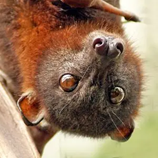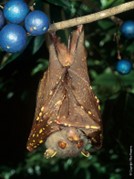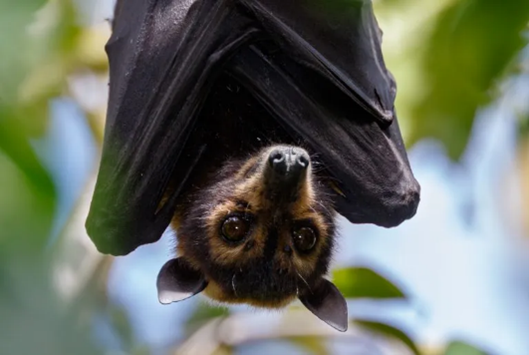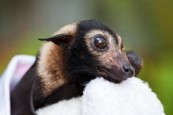Report sightings of Spectacled Flying Fox in Cassowary Coast
Whether you call them Winged Shadows, Nocturnal Aviators, or even Sky Puppies, bats hold a special place as creatures of the night in our hearts. The Cassowary Coast boasts a rich diversity of bat species, including the endangered Spectacled Flying Fox, Eastern Tube-nosed Bat, and Little Bent-winged Bat. Despite their often-spooky portrayal in movies and shows, bats play a vital role in our tropical ecosystem.
Contrary to common misconceptions (displayed in pop culture), most bats in the Cassowary Coast are insectivorous, meaning they primarily feast on smaller flying insects like moths and flies. The Little Red Flying fox focusses primarily on the nectar and blossoms of the Melaleuca Tree. Whereas, Flying Foxes, the Black and Spectacled species, deviate from this trend. Their frugivorous diet sees them traversing the rainforest landscape, consuming fruits and nectar from various native plants. Remarkably, as they dine, they inadvertently disperse seeds through their digestive processes, as well as distributing pollen actively contributing to the regeneration and diversity of the forest ecosystem. They are essential members of Far North Queensland's biodiversity as nomadic keystone species.
Unfortunately, the habitat for bats is steadily shrinking due to invasive weeds, deforestation, and most of all anthropocentric development. This encroachment directly correlates with increased fatalities among bat populations and hampers their ability to reproduce successfully. However, there are actions we can take to mitigate these threats. By planting native fruit species in our yards, participating in Landcare groups dedicated to reforestation efforts, or supporting organisations like the Bats and Trees Society through donations. Additionally, you can get involved and participate through citizen science, follow this link to report a signing of the endangered Spectacled Flying Fox. It's also important to remember that if you encounter an injured bat, refrain from touching it and instead promptly contact FNQ Wildlife Rescue at 4053 4467 for professional assistance and care.
Article by Amber Kellett, Sustainability Education Officer at Cassowary Coast Regional Council
 |
Little Red Flying Fox (Anamalia, n.d.) |
 |
Eastern Tube Nosed Bat (Quigley, n.d.) |
 |
Spectacled Flying Fox Adult (Clean Air and Urban Landscapes Hub, n.d.) |

|
Spectacled Flying Fox Pup (Suzy, n.d.) |
